Breast Augmentation in Portugal
Search and Compare the Best Clinics and Doctors at the Lowest Prices for Breast Augmentation in Portugal

Find the best clinics for Breast Augmentation in Portugal
No pricing info available
Hungary offers the best prices Worldwide
Price: $ 208
Clínica Génese do Tempo, Lda, located in Central Porto, Porto, Portugal offers patients Breast Augmentation procedures among its total of 22 available procedures, across 5 different specialties. Currently, there's no pricing information for Breast Augmentation procedures at Clínica Génese do Tempo, Lda, as all prices are available on request only. There is currently a lack of information available on the specialists practicing at the Hospital, and they are not accredited by any recognized accreditations institutes
- Home
- Portugal
Compare Before & After Photos of _procedure_photos.phpBreast Augmentation


Full-side view


Half-side view


Front view


Half-side view


Front view
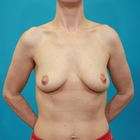

Front view
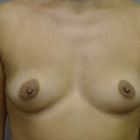
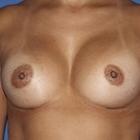
Front view
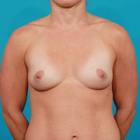

Front view


Front view
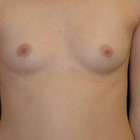

Front view
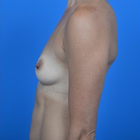
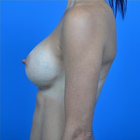
Full-side view
WHY US?
At Medijump, we're making medical easy. You can search, compare, discuss, and book your medical all in one place. We open the door to the best medical providers worldwide, saving you time and energy along the way, and it's all for FREE, no hidden fees, and no price markups guaranteed. So what are you waiting for?

Free

Best Price

Widest Selection

Risk-Free
What you need to know about Breast Augmentation in Portugal

Breast augmentation, also known as a Boob Job or Breast Enlargement, is a surgical procedure aimed at increasing breast size, enhancing shape, or improving symmetry. In Portugal, this procedure is carried out by board-certified plastic surgeons in accredited medical facilities, ensuring both safety and quality.
What is the cost of Breast Augmentation in Portugal?
Prices in Portugal are competitive, often offering savings without compromising on quality, especially when compared to costs in the US or Europe. However, factors such as surgeon’s fees, facility costs, and the type of implants affect the total cost.
What does a Breast Augmentation Procedure Involve?
The surgery involves placing breast implants under the breast tissue or chest muscles. Choices between saline or silicone implants can be made based on the desired feel and appearance. This is something your surgeon will discuss with you prior to even travelling.
How Long Should I Stay in Portugal for a Breast Augmentation Procedure?
The length of stay in Portugal for a Breast Augmentation is subject to various factors, such as your overall health, the specific nature of the procedure, and your individual recovery rate. Generally, Breast Augmentation surgery is an outpatient process, meaning you may be able to return home on the same day. However, a stay of up to two days might be necessary if your procedure is more intricate.
Although the hospital stay is relatively brief, it is advisable to remain in Portugal for at least one-week post-procedure. This timeframe allows for initial recovery and a follow-up appointment with the surgeon. Moreover, in the event of any complications, prompt medical assistance will be accessible. Thorough knowledge of the recovery process and its duration is crucial for proper preparation and managing stress during treatment.
What's the Recovery Time for Breast Augmentation Procedures in Portugal?
Post-surgery, a recovery period of one to two weeks is generally required, with follow-up visits to the surgeon. It's crucial to follow all post-op instructions for optimal healing.
Experiencing swelling and discomfort following the operation is normal, both of which should gradually alleviate with time. You will be required to wear a compression garment, take prescribed medications, and maintain a healthy lifestyle for an effective recovery.
What sort of Aftercare is Required for Breast Augmentation Procedures in Portugal?
Post-operative care is critical for the success of a Breast Augmentation. The initial recovery phase usually includes prescribed medications to alleviate pain and avert infection. Individuals can normally resume everyday activities within a few weeks, depending on their healing pace and bodily responses. However, it is advisable to refrain from vigorous activities for a minimum of six weeks post-procedure.
What's the Success Rate of Breast Augmentation Procedures in Portugal?
In Portugal, Breast Augmentation boasts a relatively high success rate, which contributes to its immense popularity among individuals seeking improvements in their physical appearance. Numerous patients have reported satisfaction and enhanced confidence after undergoing the procedure, making it a widely favoured cosmetic surgery.
Are there Alternatives to Breast Augmentation Procedures in Portugal?
In Portugal, there are several alternatives to the Breast Augmentation. If you're considering breast augmentation strictly for cosmetic reasons and prefer non-surgical options, various suitable methods are available. Alternatives include fat grafting, hormonal therapy, and natural remedies. Fat grafting, also known as fat transfer, involves removing fat from different body parts and injecting it into your breasts. This approach is regarded as safer because it employs the body's tissue, minimizing complications.
What Should You Expect Before and After the Procedure?
Prior to the procedure, your surgeon will discuss your expectations and the anticipated outcomes of your Breast Augmentation. The preoperative consultation comprises an in-depth conversation about your medical history, a physical examination, and an outline of the procedure and postoperative care. Open and candid communication with your healthcare provider is crucial at this stage to ensure the treatment matches your objectives.
Post-procedure, initial swelling and discomfort are normal and can be managed with prescribed medication. It's vital to adhere to your surgeon's post-operative guidelines, which include caring for surgical incisions, taking prescribed medications, and attending follow-up appointments. As swelling subsides and incision lines fade gradually, your enhanced breast profile will become apparent.
Keep in mind that the decision to pursue a Breast Augmentation is deeply personal and should not be made hastily. Allocate time to consider the advantages and drawbacks, and ensure you are well-informed.
What are the Risks and Complications of Breast Augmentation Procedures in Portugal?
As is the case with any surgical intervention, Breast Augmentation comes with its own set of risks and potential complications that need to be considered. These may include infections, bleeding, alterations in nipple or breast sensations, implant leakage or rupture, development of scar tissue, and unsatisfactory outcomes that could necessitate further surgeries.
Some individuals may also encounter complications tied to anesthesia, such as respiratory problems and reactions to medication. The psychological ramifications should not be overlooked, considering surgical procedures can impact mental well-being. An extensive conversation with your healthcare provider about these potential risks remains a key component in making an informed choice.
How to Prepare for Breast Augmentation in Portugal?
Thorough preparation plays a significant role in the success of your Breast Augmentation. Before the surgery, you must have detailed conversations with your surgeon about your medical background, allergies, current medications, and lifestyle habits such as smoking or alcohol consumption. You may need to cease certain medications and habits, including smoking, weeks before the procedure, as they can influence the healing process.
Practical preparations like organizing for someone to be with you on the day of the surgery, scheduling sufficient time off work for recovery, and establishing a comfortable space at home for recuperation can contribute to a smoother post-operative phase. Your surgeon's team will also advise you on pre-operative fasting and hygiene guidelines.
What are some Common Misconceptions about Breast Augmentation?
Despite its widespread popularity, numerous misconceptions surround the Breast Augmentation. One such misconception asserts that breast implants are permanent. In actuality, breast implants may require replacement after 10-15 years, with the specific timeframe depending on individual health and lifestyle factors. Another false assumption is that breast augmentation solely serves vanity purposes. In reality, many patients undergo this procedure following mastectomy or as part of gender-affirming surgery.
A further common myth suggests that breast augmentation hinders breastfeeding. While a few instances might affect breastfeeding, the majority of individuals with breast implants can successfully breastfeed.
Whilst the information presented here has been accurately sourced and verified by a medical professional for its accuracy, it is still advised to consult with your doctor before pursuing a medical treatment at one of the listed medical providers
No Time?
Tell us what you're looking for and we'll reachout to the top clinics all at once
Enquire Now

Popular Procedures in Portugal
Prices Start From $834

Prices Start From $500

Prices Start From $93

Prices Start From $85

Prices Start From $477

Prices Start From $931

Recommended Medical Centers in Portugal for Breast Augmentation

- Interpreter services
- Translation service
- Religious facilities
- Medical records transfer
- Medical travel insurance
- Health insurance coordination
- TV in the room
- Safe in the room
- Phone in the room
- Private rooms for patients available

- Interpreter services
- Translation service
- Religious facilities
- Medical records transfer
- Medical travel insurance
- Health insurance coordination
- TV in the room
- Safe in the room
- Phone in the room
- Private rooms for patients available

- Interpreter services
- Translation service
- Religious facilities
- Medical records transfer
- Medical travel insurance
- Health insurance coordination
- TV in the room
- Safe in the room
- Phone in the room
- Private rooms for patients available

- Interpreter services
- Translation service
- Religious facilities
- Medical records transfer
- Medical travel insurance
- Health insurance coordination
- TV in the room
- Safe in the room
- Phone in the room
- Private rooms for patients available

- Interpreter services
- Translation service
- Religious facilities
- Medical records transfer
- Medical travel insurance
- Health insurance coordination
- TV in the room
- Safe in the room
- Phone in the room
- Private rooms for patients available

- Interpreter services
- Translation service
- Religious facilities
- Medical records transfer
- Medical travel insurance
- Health insurance coordination
- TV in the room
- Safe in the room
- Phone in the room
- Private rooms for patients available

- Interpreter services
- Translation service
- Religious facilities
- Medical records transfer
- Medical travel insurance
- Health insurance coordination
- TV in the room
- Safe in the room
- Phone in the room
- Private rooms for patients available

- Interpreter services
- Translation service
- Religious facilities
- Medical records transfer
- Medical travel insurance
- Health insurance coordination
- TV in the room
- Safe in the room
- Phone in the room
- Private rooms for patients available

- Interpreter services
- Translation service
- Religious facilities
- Medical records transfer
- Medical travel insurance
- Health insurance coordination
- TV in the room
- Safe in the room
- Phone in the room
- Private rooms for patients available
Breast Augmentation in and around Portugal
Introduction
Portugal is a country located in southwestern Europe. It’s one of the oldest nation-states of Europe and the world. Its territory had been continuously invaded, settled, and fought over since prehistoric times. Today, the country has become a major tourist destination, with its architecturally stunning cities, cobblestone villages, medieval castles, great food, stunning beaches, and incredible weather. Besides its beauty, Portugal is also attracting people from all around the world for its healthcare. The country offers a combination of state-of-the-art private medical centers, with spotless facilities and private rooms, a wide range of procedures, with very short waiting lists, as well as highly trained patient-oriented medical teams who are fluent in different languages. The physicians in this country have been trained by high standard medical schools, where just top and talented students are allowed to attend.
Popular Cities and Regions in Portugal
Lisbon is the capital and the largest city in Portugal. This city is filled with friendly people, history, mystique, and amazing food. Explore its many beautiful churches, listen to Fado, take a trip to the Castle of St. Jorge, see Sintra, and have some fun in one of its nightclubs. Another popular destination is Batalha, which is home to the UNESCO-listed Batalha Monastery. The monastery was build from 1386 to 1517 and is known as the greatest Gothic masterpieces in Europe. Those who want to party or soak up the sun should visit Lagos, while those who love to wander around and visit museums should visit Porto. Both of these cities are popular and fascinating.
Transport in Portugal
International tourists usually arrive at Lisbon Airport. It is a hub for low-cost airlines EasyJet and Ryanair, and it serves flights to numerous cities around the world. To get around Portugal, trains and buses are very efficient. While trains are often cheaper, buses are usually quicker. Taxis are available in almost every city and are relatively cheap.
Visas in Portugal
Since Portugal is part of the Schengen Area, citizens of 62 countries, including the US, Australia, the UAE, and Canada, are allowed to visit without a visa for up to 90 days. Citizens of most other countries are required to obtain a Schengen visa to visit the country.
Weather in Portugal
From March to May it is spring and the weather is pleasant but there will likely be some heavy rain. Summer, is from June to mid-September, can be scorching hot with temperatures rising to mid 30oC. Autumn, starts from mid-September to December and it brings colder temperatures but and an increased chance of rain. Winter can get quite cold and the days are shorter and always expect rain and storms during this season.
Additional Info
- Local Currency: The euro is the official currency. 1 EUR is equivalent to 1.08 USD.
- Money & Payments: ATMs are widely available, except in small villages. Credit cards are often accepted at midrange and high-end establishments. Tipping is usually expected at hotels and restaurants.
- Local Language: The official language is Portuguese. However, English, French, and Spanish are widely spoken in the country.
- Local Culture and Religion: Christianity is the major religion of the country. Other religions are practiced by a small portion of the population.
- Public Holidays: Portugal Day, Restoration of Independence, and Christmas Day are some of the public holidays celebrated in Portugal.
Popular Searches
- Plastic Surgery in Thailand
- Dental Implants in Thailand
- Hair Transplant in Thailand
- Breast Augmentation Thailand
- Gastric Sleeve in Thailand
- Gender Reassignment Surgery in Thailand
- Laser Hair Removal in Bangkok
- Botox in Bangkok
- Dermatology in Bangkok
- Breast Augmentation in Bangkok
- Coolsculpting in Bangkok
- Veneers in Turkey
- Hair Transplant in Turkey
- Rhinoplasty in Turkey
- Stem Cell Therapy in Mexico
- Rhinoplasty in Mexico
- Liposuction in Mexico
- Coolsculpting in Tijuana
- Rhinoplasty in Korea
- Scar Removal in Korea
- Gastric Sleeve in Turkey
- Bone Marrow Transplant in India
- Invisalign in Malaysia
- Plastic Surgery in the Dominican Republic
- Tummy Tuck in the Dominican Republic
- Plastic and Cosmetic Surgery in Poland
- Rhinoplasty in Poland
- Hair Implant in Poland
- Dental Implants in Poland
- IVF in Turkey
